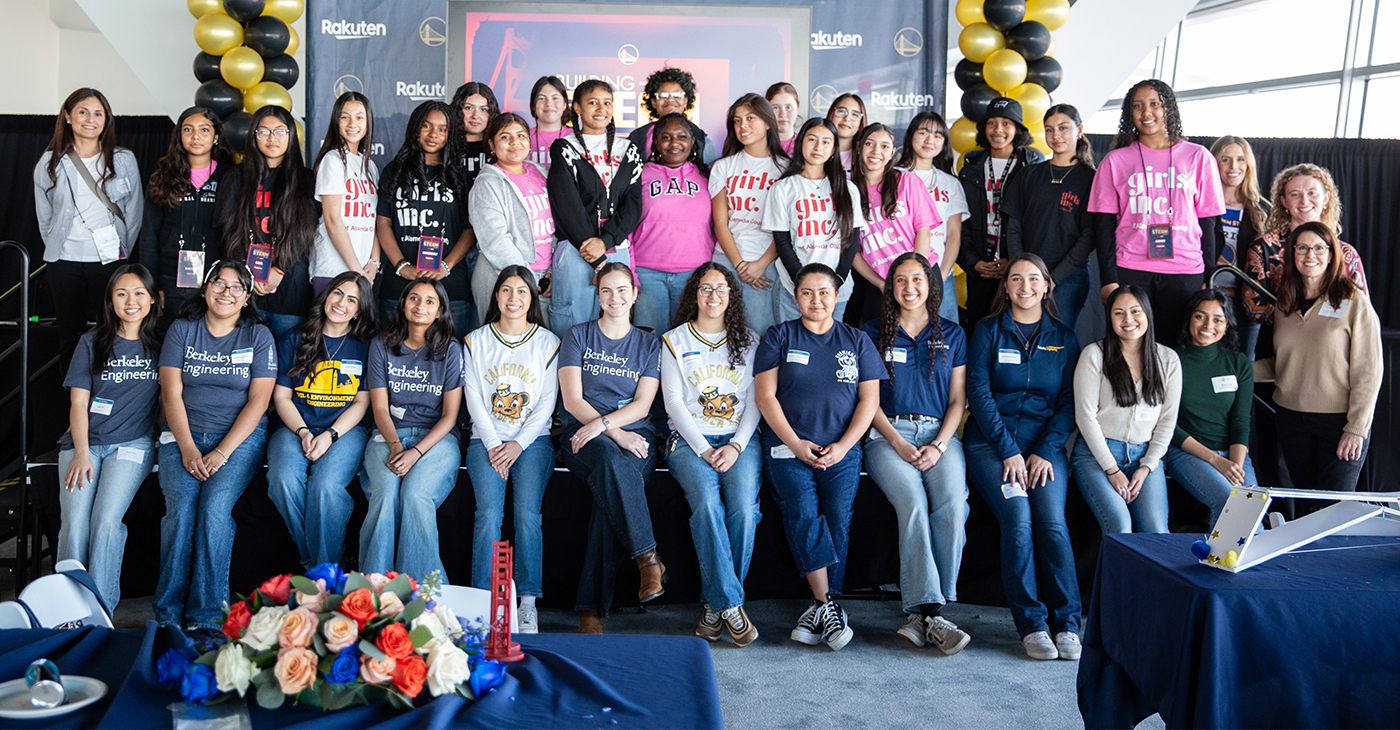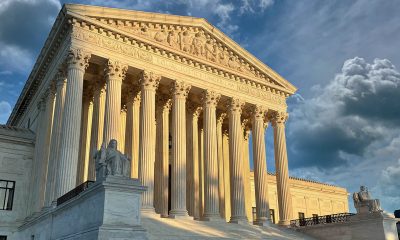Technology
US at Odds with Google on Computer Search-Warrant Proposal

In this Feb. 12, 2015 file photo, FBI Director James Comey speaks at Georgetown University in Washington. The Justice Department is at odds with Google and privacy groups over the governments push to make it easier to locate and hack into computers in criminal investigations. (AP Photo/Cliff Owen, File)
ERIC TUCKER, Associated Press
WASHINGTON (AP) — A Justice Department proposal that could make locating and hacking into computers that are part of criminal investigations easier is raising constitutional concerns from privacy groups and Google, who fear the plan could have broad implications.
Federal prosecutors say their search warrant proposal is needed at a time when computer users are committing crimes in online anonymity while concealing their locations. But civil libertarians fear the rule change, under consideration by a federal advisory committee, would grant the government expansive new powers to reach into computers across the country.
The proposal would change existing rules of criminal procedure that, with limited exceptions, permit judges to approve warrants for property searches only in the districts where they serve. The government says those rules are outdated in an era when child pornographers, drug traffickers and others can mask their whereabouts on computer networks that offer anonymity. Such technology can impede or thwart efforts to pinpoint a suspect’s geographic location.
The Justice Department wants the rules changed so that judges in a district where “activities related to a crime” have occurred could approve warrants to search computers outside their districts. The government says that flexibility is needed for cases in which the government can’t figure out the location of a computer and needs a warrant to access it remotely, and for investigations involving botnets — networks of computers infected with a virus that spill across judicial districts.
“There is a substantial public interest in catching and prosecuting criminals who use anonymizing technologies, but locating them can be impossible for law enforcement absent the ability to conduct a remote search of the criminal’s computer,” Justice Department lawyers wrote in one memo explaining the need for the change.
The advisory committee considering the rule change is meeting this month.
The proposal has generated fierce pushback from privacy organizations, including the American Civil Liberties Union, which contend the rule change could violate a constitutional requirement that search warrant applications be specific about the property to be searched. They also argue the proposal is unclear about exactly what type of information could be accessed by the government and fails to guarantee the privacy of those not under investigation who might have had access to the same computer as the target, or of innocent people who may themselves be victims of a botnet.
“What procedural protections are going to be in place when you do these types of searches? How are they going to be limited?” asked Alan Butler, senior counsel at the Electronic Privacy Information Center.
Another critic, Google, says the proposal “raises a number of monumental and highly complex constitutional, legal and geopolitical concerns that should be left for Congress to decide.”
Privacy groups are also concerned that the proposal would lead to more frequent use by the FBI of surveillance technology that can be installed remotely on a computer to help pinpoint its location. Such tactics caught public attention last year when FBI Director James Comey acknowledged that in 2007 an agent posing as an Associated Press reporter had sent to a bomb-threat suspect a link to an article that, once opened, revealed to investigators the computer’s location and Internet address.
“To the extent that the government has been prevented from doing lots of these kinds of searches because they didn’t necessarily have a judge to go to, this rule change raises the risk that the government will start using these dubious techniques with more frequency,” said ACLU lawyer Nathan Freed Wessler.
The Justice Department says such concerns are unfounded. It says the proposal simply ensures that investigators have a judge to go to for a warrant in cases where they can’t find a computer, and that the proposal wouldn’t provide the government with new technological authorities that it doesn’t already have.
It’s hard to quantify the scope of the problem, though the Justice Department says their concerns are more than abstract.
In 2013, a magistrate judge in Texas rejected a request to search a computer that the government said was being used to commit bank fraud but whose location was unknown. Prosecutors sought authority to install software on the machine that would have extracted records and location information.
The judge, Stephen Smith, said he lacked the authority to approve the search for a computer “whose location could be anywhere on the planet” but said “there may well be a good reason to update the territorial limits of that rule in light of advancing computer search technology.”
The proposal is before a criminal procedure advisory committee of the Judicial Conference of the United States. If approved, it will then be forwarded to the Supreme Court and ultimately to Congress, which does not have to approve it but can block it. It would take effect in December 2016.
___
Follow Eric Tucker on Twitter at http://www.twitter.com/etuckerAP
Copyright 2015 The Associated Press. All rights reserved. This material may not be published, broadcast, rewritten or redistributed.
Activism
Golden State Warriors Program Is Inspiring Next Generation of Female Engineers
Breaking down barriers and biases that deter young girls from pursuing STEAM subjects is essential for creating a level playing field and ensuring equal opportunities for all. By challenging stereotypes and promoting a culture of inclusivity and diversity in STEAM fields, experts believe young girls can be empowered to pursue their interests and aspirations without limitations confidently. Encouraging mentorship, providing access to resources, and celebrating girls’ achievements in STEAM are all crucial steps in creating a supportive environment that fosters success.

By Y’Anad Burrell
The Golden State Warriors and e-commerce giant Rakuten are joining forces to inspire the next generation of female engineers through Building STEAM Futures, part of The City Calls campaign.
Organizers say the initiative is founded on the idea that science, technology, engineering, arts, and mathematics (STEAM) are crucial fields for innovation and progress, and empowering young girls to pursue careers in these areas is more important than ever. Studies consistently show that girls are underrepresented in STEAM fields, resulting in a gender disparity that limits potential and hinders diversity.
Breaking down barriers and biases that deter young girls from pursuing STEAM subjects is essential for creating a level playing field and ensuring equal opportunities for all. By challenging stereotypes and promoting a culture of inclusivity and diversity in STEAM fields, experts believe young girls can be empowered to pursue their interests and aspirations without limitations confidently. Encouraging mentorship, providing access to resources, and celebrating girls’ achievements in STEAM are all crucial steps in creating a supportive environment that fosters success.
On Saturday, March 8, International Women’s Day, the Warriors and Rakuten hosted 20 middle school girls from Girls Inc. of Alameda County at Chase Center’s Above the Rim for a hands-on bridge-building experience. The young girls from Girls, Inc. of Alameda County had an opportunity to design, build and test their own bridge prototypes and learn the fundamentals of bridge construction from the Engineering Alliance and the UC Berkeley Steel Bridge Team.
This STEAM experience for the girls followed the first session in January, where they took a behind-the-scenes tour of the Golden Gate Bridge, learning about its design and construction from industry experts. The City Calls campaign, tipped off with the unveiling the Warriors’ new bridge-themed City Edition jerseys and court design earlier this year.
Activism
Self-eSTEM Empowers BIPOC Women, Girls in Science, Math
In January 2025, Self-eSTEM will launch digital and generative AI programming, which provides digital literacy and AI literacy training through an entrepreneurial project-based activity. This programming will be a hybrid (i.e. in-person and online). Additionally, thanks to a grant from Comcast, in spring 2025, the organization will have a co-ed series for middle and high school students.

By Y’Anad Burrell
Special to The Post
In a world where technology plays an increasingly central role in all aspects of life, the importance of Science, Technology, Engineering, and Math (STEM) education cannot be overstated. Recognizing the significance of STEM for the future, focusing on young women and girls is a critical step in achieving gender equality and empowering the next generation.
Self-eSTEM, an Oakland-based non-profit organization, was founded by Adamaka Ajaelo, an Oakland native who had a successful corporate career with several Bay Area technology and non-tech companies. Ajaelo boldly decided to step away from these companies to give 100% of her time and talent to the non-profit organization she started in 2014 in the belief that she can change the game in innovation and future STEM leaders.
Over the course of a decade, Ajaelo has provided futurist tech programming to more than 2,000 BIPOC women and girls. The organization has an Early STEM Immersion Program for ages 7-17, Emerging Leaders Workshops for ages 18-25 and volunteer network opportunities for ages 25 and up.
In January 2025, Self-eSTEM will launch digital and generative AI programming, which provides digital literacy and AI literacy training through an entrepreneurial project-based activity. This programming will be a hybrid (i.e. in-person and online). Additionally, thanks to a grant from Comcast, in spring 2025, the organization will have a co-ed series for middle and high school students.
While the organization’s programs center on innovation and technology, participants also gain other valuable skills critical for self-development as they prepare for a workforce future. “Self-eSTEM encourages young women to expand on teamwork, communication, creativity, and problem-solving skills. The organization allows young women to enter STEM careers and pathways,” said Trinity Taylor, a seventh-year innovator.
“Our journey over the last decade is a testament to the power of community and opportunity, and I couldn’t be more excited for what the future holds as we continue to break barriers and spark dreams,” said Ajaelo.
“By encouraging girls to explore STEM fields from a young age, we foster their intellectual growth and equip them with the tools needed to thrive in a competitive global economy,” Ajaelo says.
Empowering young girls through STEM education is also a key driver of innovation and progress. When young women and girls are encouraged to pursue careers in STEM, they bring unique perspectives and problem-solving approaches to the table, leading to more diverse and inclusive solutions. This diversity is crucial for driving creativity and pushing boundaries in scientific and technological advancements.
Self-eSTEM has fundraising opportunities year-round, but year-end giving is one of the most critical times to support the program. Visit www.selfestem.org to donate to the organization, as your generosity and support will propel programming support for today’s innovators.
You will also find more details about Self-eSTEM’s programs on their website and social channels @selfestemorg
Antonio Ray Harvey
Feds: California Will Be Home to New National Semiconductor Technology Center
California was chosen by the U.S. Department of Commerce (Commerce) and Natcast, the operator of the National Semiconductor Technology Center (NSTC) to be home to the headquarters for the National Semiconductor Technology Center – as part of the Biden-Harris Admin’s CHIPS and Science Act. The CHIPS for America Design and Collaboration Facility (DCF) will be one of three CHIPS for America research and design (R&D) facilities and will also operate as the headquarters for the NTSC and Natcast.

By Antonio Ray Harvey
California was chosen by the U.S. Department of Commerce (Commerce) and Natcast, the operator of the National Semiconductor Technology Center (NSTC) to be home to the headquarters for the National Semiconductor Technology Center – as part of the Biden-Harris Admin’s CHIPS and Science Act.
The CHIPS for America Design and Collaboration Facility (DCF) will be one of three CHIPS for America research and design (R&D) facilities and will also operate as the headquarters for the NTSC and Natcast.
“We are thrilled that the Department of Commerce and Natcast chose to locate this critically important facility in Sunnyvale, the heart of the Silicon Valley, alongside the world’s largest concentration of semiconductor businesses, talent, intellectual property, and investment activity,” said Dee Dee Myers, Senior Economic Advisor to Gov. Gavin Newsom and Director of the Governor’s Office of Business and Economic Development (GO-Biz). “The Newsom Administration and our partners across the industry know how important it is to shorten the timeframe from R&D to commercialization.”
According to GO-Biz, the DCF is expected to direct over $1 billion in research funding and create more than 200 employees in the next decade. The facility will serve as the center for advanced semiconductor research in chip design, electronic design automation, chip and system architecture, and hardware security. The CHF will be essential to the country’s semiconductor workforce development efforts.
As detailed in the released NSTC Strategic Plan, the DCF will suppress the obstacles to “semiconductor prototyping, experimentation,” and other R&D activities that will enhance the country’s global power and leadership in design, materials, and process innovation while enabling a vigorous domestic industr“Establishing the NSTC headquarters and design hub in California will capitalize on our state’s unparalleled assets to grow a highly skilled workforce and develop next-generation advancements,” stated U.S. Sen. Alex Padilla (D-Calif.). “This CHIPS Act funding will propel emerging technologies and protect America’s global semiconductor leadership, all while bringing good-paying jobs to our state.”
-

 Activism2 weeks ago
Activism2 weeks agoWe Fought on Opposite Sides of the Sheng Thao Recall. Here’s Why We’re Uniting Behind Barbara Lee for Oakland Mayor
-

 #NNPA BlackPress2 weeks ago
#NNPA BlackPress2 weeks agoRev. Dr. Jamal Bryant’s Black Church Target Boycott Mobilizes 150,000
-

 Activism3 weeks ago
Activism3 weeks agoSan Francisco Is Investing Millions to Address Food Insecurity. Is Oakland Doing the Same?
-

 #NNPA BlackPress4 weeks ago
#NNPA BlackPress4 weeks agoFighting to Keep Blackness
-

 #NNPA BlackPress2 weeks ago
#NNPA BlackPress2 weeks agoRecently Approved Budget Plan Favors Wealthy, Slashes Aid to Low-Income Americans
-

 Activism2 weeks ago
Activism2 weeks agoFaith Leaders Back Barbara Lee for Mayor, Criticize Candidate Loren Taylor for Dishonest Campaigning
-

 Activism3 weeks ago
Activism3 weeks agoOakland Post: Week of March 12 – 18, 2025
-

 Activism2 weeks ago
Activism2 weeks agoGroup Takes First Steps to Recall District Attorney Diana Becton

























































